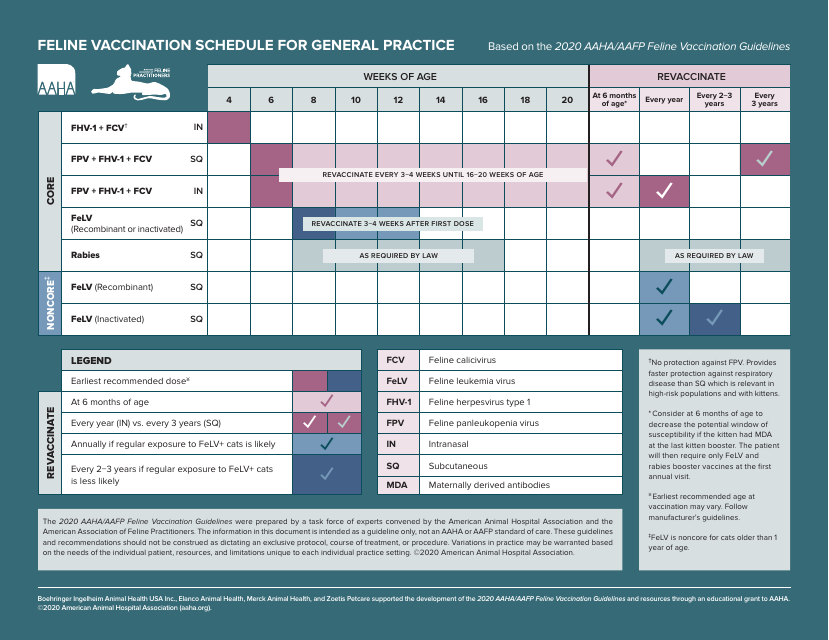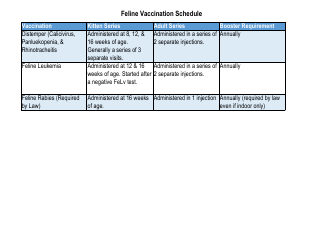Feline Vaccination Schedule for General Practice - American Animal Hospital Association
The Feline Vaccination Schedule for General Practice by the American Animal Hospital Association (AAHA) is a detailed guideline outlining the recommended vaccinations and their schedule for cats. This helps ensure cats get appropriate protection against certain diseases throughout their various life stages.
The document offers essential information for pet owners, breeders, and particularly veterinarians to know what vaccines are necessary, what they protect against, and when they should be administered. It should be noted that the exact vaccination schedule may vary depending on the cat's age, health status, breed, lifestyle, and the area where they live, among other factors. As always, it's best to consult a qualified veterinarian for personalized advice regarding your cat's vaccination.
The Feline Vaccination Schedule for General Practice is typically filed by veterinarians or relevant medical staff employed at an American Animal Hospital Association (AAHA) accredited animal hospital. The AAHA sets the guidelines for proper vaccination schedules for various animals, including cats (felines). Veterinary professionals are responsible for adhering to these schedules and keeping accurate records. General practitioners in veterinary medicine follow these guidelines to ensure that all animals get the necessary vaccines on time.
FAQ
Q: What is a feline vaccination schedule?
A: A feline vaccination schedule is a timetable given by veterinarians to ensure a cat is up-to-date with its vaccinations, and stays protected against common diseases.
Q: What is the American Animal Hospital Association?
A: The American Animal Hospital Association (AAHA) is a non-profit organization that provides accreditation to veterinary practices in the USA and Canada, ensuring the highest standard of pet care.
Q: Why are vaccinations important for cats?
A: Vaccinations are important for cats because they protect the cats from a number of potentially severe feline diseases.
Q: What vaccinations should my cat receive?
A: Common vaccines for cats protect against feline distemper (panleukopenia), rabies, feline leukemia virus (FeLV), and respiratory infections (feline herpesvirus and calicivirus).
Q: How often should a cat be vaccinated?
A: Cat vaccination schedules vary depending on specifics like age, health, and lifestyle. However, according to AAHA, after the initial kitten series, cats generally should be vaccinated every one to three years.
Q: Should indoor cats be vaccinated?
A: Yes, even indoor cats should be vaccinated. Though they're less likely to be exposed to diseases, it's still possible and therefore important to keep their vaccinations up-to-date.
Q: What are the risks associated with feline vaccinations?
A: Though rare, side effects to vaccines can occur, including mild fever, loss of appetite, or swelling at the injection site. Severe reactions such as allergic reactions or development of tumors (sarcomas) can happen but are very rare.


